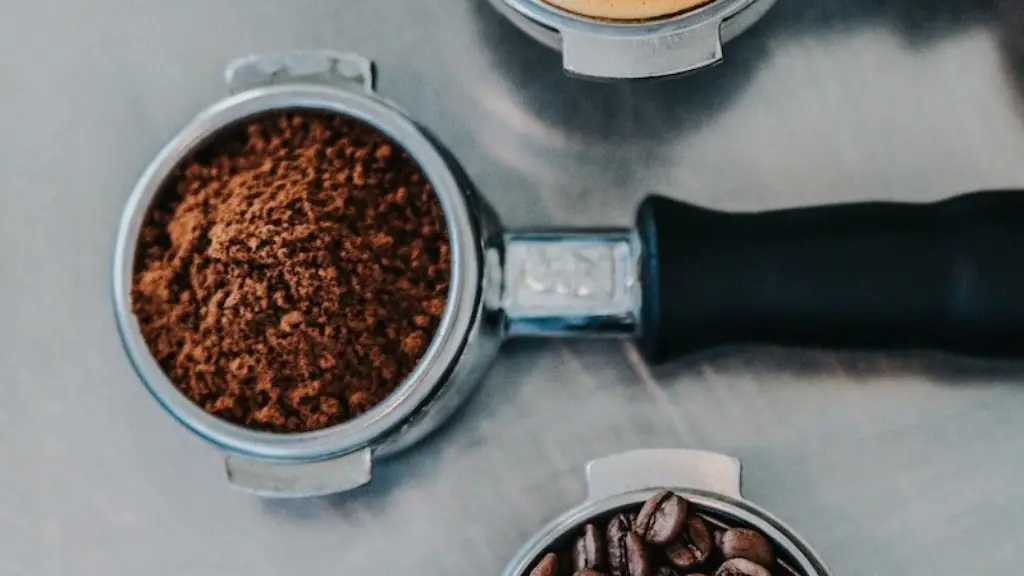Coffee and Headaches
It’s no secret that coffee can be a lifesaver for many of us, particularly in the morning. Whether you’re stopping for a cup of espresso to get you through the day or reaching for your favourite mug of latte, it’s all too easy to get into a habit of regularly consuming caffeine. However, breaking this cycle can sometimes come with consequences.
As with most things, moderation is key when it comes to caffeine intake. While drinking coffee in moderation can provide a range of benefits, including increased alertness and improved cognitive performance, it can become problematic if consumed too frequently or in too high a quantity. Suddenly stopping or cutting the amount you drink can lead to withdrawal symptoms such as headaches.
According to Dr. Ashvini Menon, a neurologist in Bangalore specialising in headaches, the impact of caffeine withdrawal are different depending on the individual. While some may suffer relatively mild symptoms, others may find them debilitating. It’s important to understand how your body responds to caffeine and to be aware of the potential risks of ceasing consumption abruptly.
The majority of these symptoms occur within 24 to 50 hours of ceasing caffeine consumption, with headaches being the most common complaint. Research has shown that these headaches can be generally divided into two categories: dull and continuous, or more intense pounding.
The reason for these headaches lies in the vasoconstriction that coffee consumption causes. Specifically, the presence of caffeine causes the blood vessels to constrict, reducing blood flow to the brain. As such, when caffeine consumption is suddenly ceased, the dilation of the previously constricted vessels can press on surrounding nerves, leading to headaches.
Headaches brought on by caffeine withdrawal can be eased in much the same way as other headaches: Over-the-counter medications such as paracetamol, ibuprofen and aspirin are all effective at tackling the discomfort. However, the best approach is to manage your consumption from the outset. If you’re drinking coffee in high quantities, it’s important to remember to cut back gradually rather than suddenly. This should reduce the chances of headaches occurring.
Reducing Caffeine Intake
Caffeine has become an integral part of modern life, used by individuals to cope with the demands of daily life. Like most lifestyle habits, however, it is important to keep caffeine consumption within limits. If you’re concerned you’re consuming too much, here are a few tips to help you:
Firstly, it’s important to be aware of the reality of your caffeine intake. Make note of your daily consumption, including coffee, tea and energy drinks, and review your routine. Doing this will help you understand how much you’re really getting, as it’s easy to find your caffeine consumption gradually increasing without you realising.
Next, start decreasing your intake slowly but steadily. Cutting back on caffeinated beverages too sharply can make the headaches worse, so use this period to wean yourself off them. Look for alternatives such as organic herbal teas if you need a boost.
Finally, you can use supplements to help reduce caffeine withdrawal symptoms. For example, L-theanine is an amino acid which is known to be particularly effective at moderating the effects of caffeine withdrawal. It has been used to reduce the risk of experiencing headaches.
Preventing Caffeine Implications
Paying attention to potential side effects of caffeine and understanding how to manage them is an important part of managing your caffeine intake. Here are some of the most effective methods:
Firstly, it’s important to be aware of what the underlying causes of headaches are. While headaches are often linked to caffeine withdrawal, they can also be caused by stress, dehydration or poor nutrition. Taking steps to ensure you remain hydrated, adequately rested and well-fed can help tackle many headaches before they even occur.
Next, pay attention to your daily routine. Recognise when your lifestyle is raising your stress levels and look for ways to reduce it. If your headache is a result of caffeine withdrawal, taking measures such as a change of environment and doing relaxation techniques, such as yoga or deep breathing, can be effective.
Finally, consider why you are using caffeine in the first place. If it’s for energy, look for healthier alternatives such as exercising regularly. You may find yourself drinking caffeine less when you’ve found a healthier and more sustainable way to remain energised.
Benefits of Reducing Caffeine Intake
For most of us, coffee has become an essential part of our daily routines. It helps us boost our concentration when we need it and provides us with a much-needed energy boost. But reducing your caffeine intake can also have terrific benefits.
Firstly, moderating your caffeine consumption may have a positive impact on your overall health. Decreasing your caffeine intake may increase your energy levels, reduce anxiety and make stress more manageable. Additionally, reducing your consumption may result in fewer headaches over time, providing you with an overall better quality of life.
In addition, moderating your intake may also improve mental and emotional alertness. As excessive caffeine can make it harder to sleep, reducing your intake elevates be beneficial for improving sleeping quality. Studies have indicated that regular caffeine consumption can disrupt sleep patterns, increasing the risk of health complications such as heart disease, diabetes and high blood pressure.
Getting appropriate sleep is also beneficial to mental health. Not only will you be able to function better the next day, but you are also likely to have improved reaction time, increased concentration levels and better overall mental performance. Eating well and drinking plenty of water will also help reduce the symptoms of headaches.
Identifying Caffeine Habits
Our modern lifestyle means that many of us have unwittingly become dependent on caffeine. Unaware of the potential health implications, we find ourselves reaching for coffee whenever we feel a lack of energy. It’s important to recognise if you’ve developed a dependency on caffeine and take steps to address it if necessary.
Indicators of caffeine dependency can include: drinking caffeine to ease tiredness during the day; finding it difficult to start the day without caffeine; and feeling tired for the first few hours after waking up. Additionally, if you find yourself requiring higher and higher doses to get the same effect, or if you experience mental fog when you haven’t had caffeine, you may be becoming overly reliant on caffeine.
Recognising and reducing your caffeine dependency is beneficial in many ways. Understanding how your body responds and why you turn to caffeine can help you better manage your energy and mental awareness.
Treatment for Caffeine Abuse
If you feel that you are using caffeine inappropriately, it is important to act quickly and seek help. Treatment for dependence on caffeine typically involves cutting back on your intake in a way that won’t lead to withdrawal symptoms. This can be done by reducing your caffeine intake by at least a third each day, until you’re consuming less than 100mg a day.
You can also look for alternatives such as non-caffeinated vitamin-fortified drinks, which will help to reduce withdrawals as they are similar to caffeinated drinks. Other quick-fix substitutes can help with immediate cravings. For example, drinking camomile tea or chewing gum can be effective short-term.
Caffeine dependency is a growing issue, and it’s important to take action early to avoid long-term effects. Educating yourself on the potential implications of caffeine consumption will help you identify problems earlier and make better decisions.





